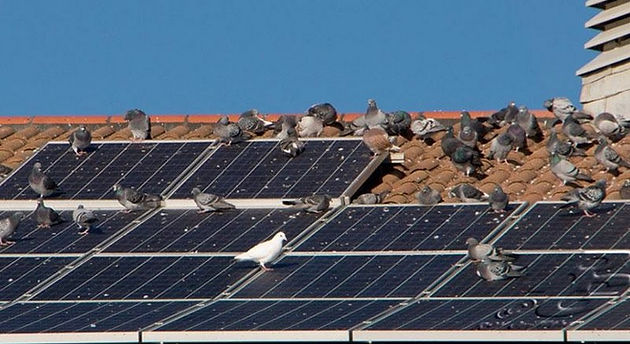Pigeon pervasions on sun-powered chargers can prompt different issues that can influence the proficiency, well-being, and life span of the sun-oriented energy framework. Pigeon Proofing Solar Panels in London is considered a priority.

Pigeons and different birds, right off the bat, frequently make homes and perch on sunlight-based chargers. The aggregation of settling materials, droppings, and quills can obstruct daylight from arriving at the photovoltaic cells, lessening the energy result of the sun-powered chargers. This diminishing in proficiency implies that the nearby planet group creates less power than it ought to, bringing about lower energy creation and possibly longer restitution periods for the interest in sunlight-based innovation.
Second, the corrosive nature of bird droppings may eventually cause solar panel coatings to become damaged. The acidic idea of the droppings can debase the outer layer of the boards, prompting long-lasting stains and diminished light conveyance. These damages not only affect the efficiency of the panels but also make it less likely that they will last as long, which will necessitate costly repairs or replacements. Moreover, pigeon nests can create a fire hazard. Pigeons often build nests using flammable materials such as twigs and dry leaves. When these nests accumulate in or around the solar panel system, they can catch fire, posing a risk not only to the panels but also to the entire property.
Beyond the practical implications, Pigeon Proofing Solar Panels in London is also essential from an environmental perspective. Sun-based energy is a supportable and eco-accommodating wellspring of force. When bird pervasions diminish the framework’s effectiveness, it might prompt a higher dependence on other, less harmless ecosystem energy sources, adding to expanded fossil fuel byproducts and natural corruption.

Leave a comment